Retractable Scriber
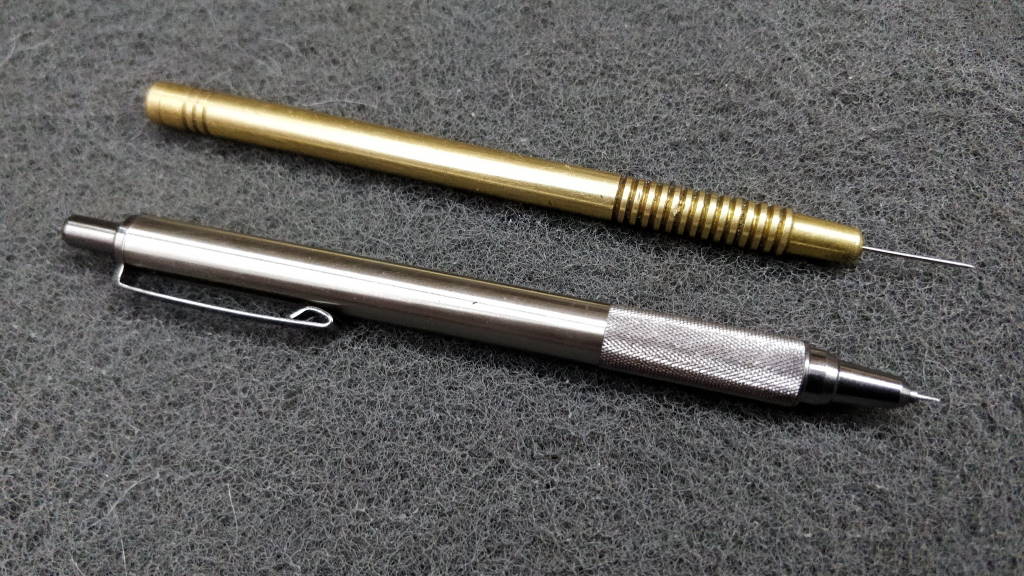
The image above shows a couple of scribers I've made for marking out work. The brass scriber is based on a design by Chris from Clickspring. His design used a needle for a scribing tip whereas mine uses a pin, but otherwise they're basically identical.
I've used the brass scriber for many years (it was one of the first things I made on my mini-lathe) and it works really well. The pins last me about a year before they get too bent or blunt and need to be removed (by heating them up until the glue that holds them in place gives up) and replaced. The only problem with the scriber is that I tend to keep it in my pocket as a frequently used tool and it has a habit of puncturing my hand when I reach into my pocket to get it (or something else).
The other scriber in the photo above is my attempt to fix this problem.
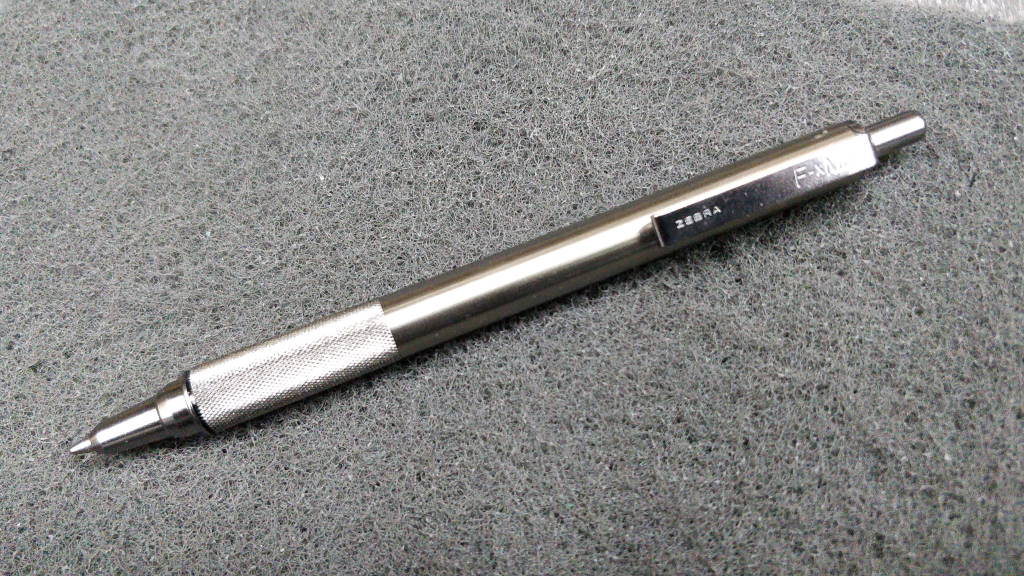
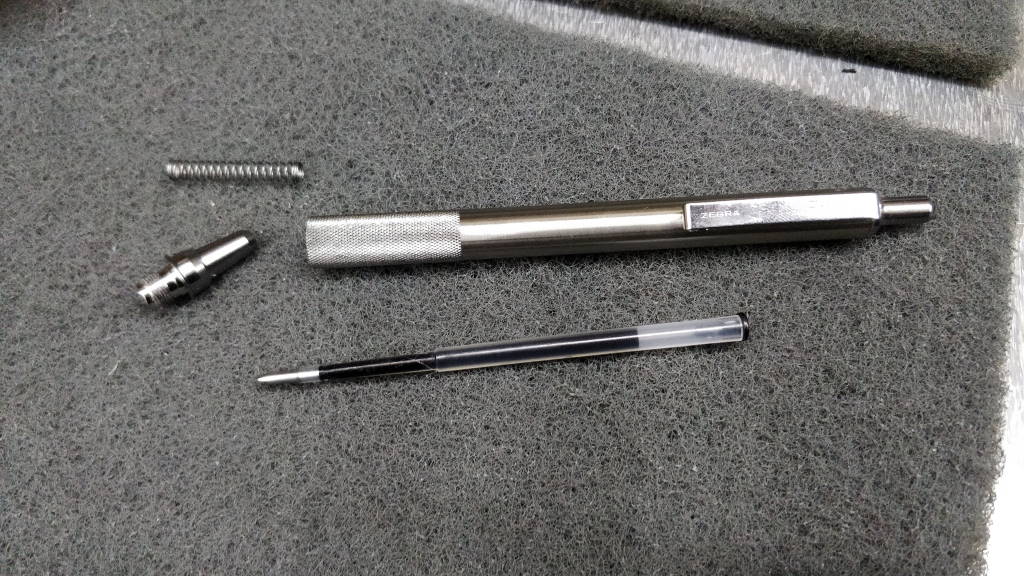
These photos show a ball pen that I had lying around but didn't really use very much. It's a Zebra F701 (I think) and it seemed a good option for a scriber as it has a metal (stainless steel) body that would survive a workshop environment better than a plastic bodied pen would. I removed the ink cartridge and measured it. I don't think the dimensions are especially critical.
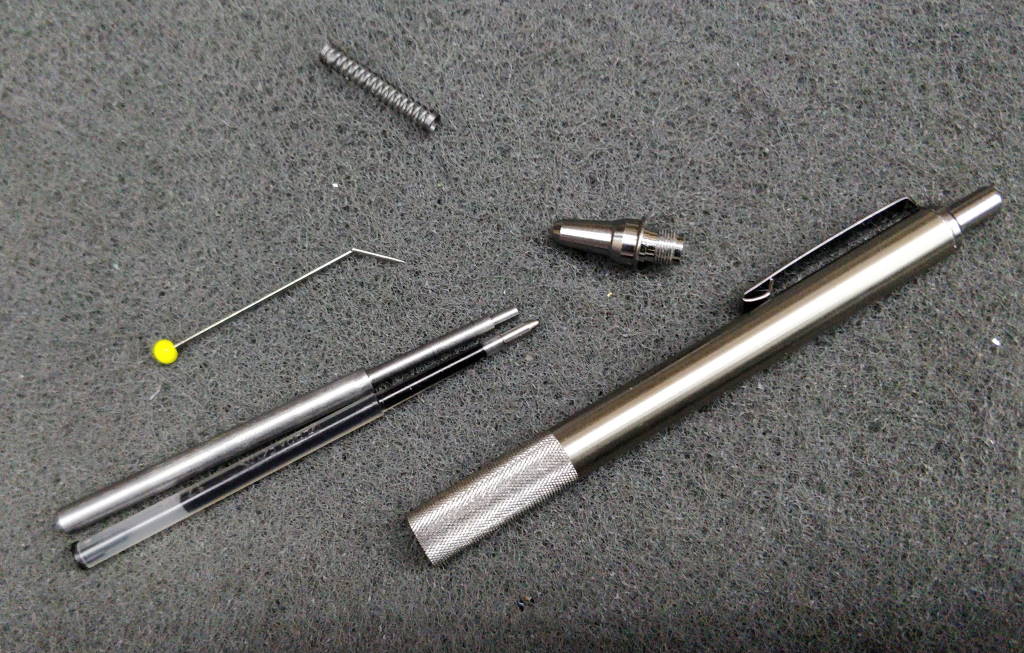
I made a new "cartridge" from some 5 mm EN1A bar. I drilled a 0.8 mm hole in the end to a depth of about 7 mm and then turned the outer profile to match the ink cartridge. I made the tip of the new steel "cartridge" 3 mm shorter than the ink cartridge I was copying.
In the photo you can also see a dressmaker's pin that I have cut with some side cutters. The removed tip section is 10 mm long. The cut end gets inserted into the steel "cartridge" to a depth of 7 mm and held in place with Loctite 603. The sharp end then protrudes for about 3 mm.
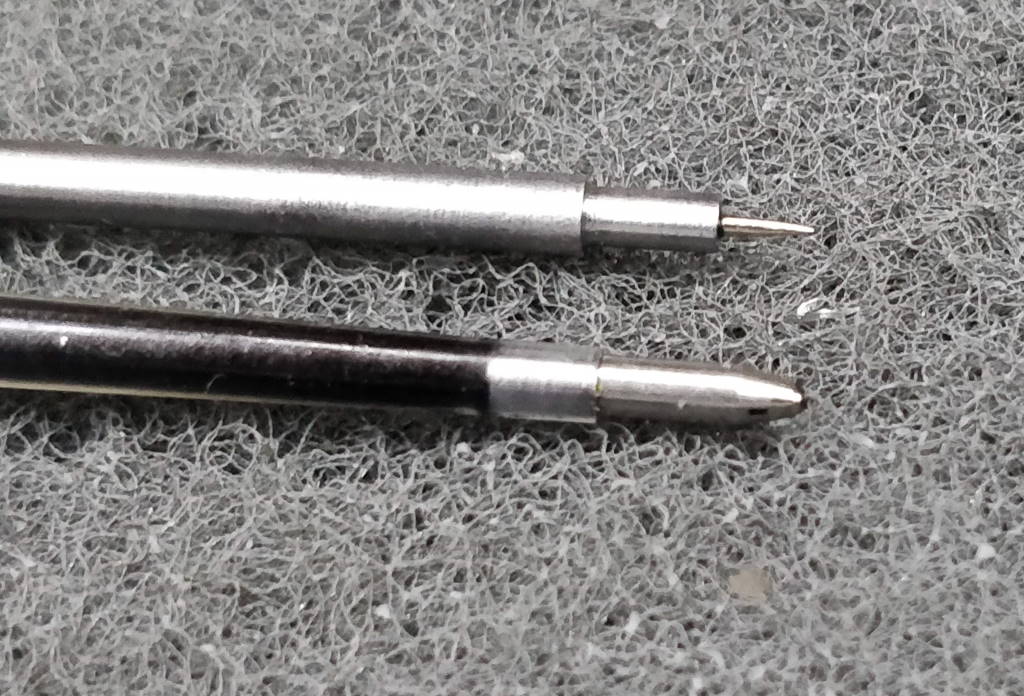
This photos shows a close-up of the new scriber "cartridge" next to the old ink cartridge. You can see the pin tip that has been glued into the 0.8 mm hole in the end.
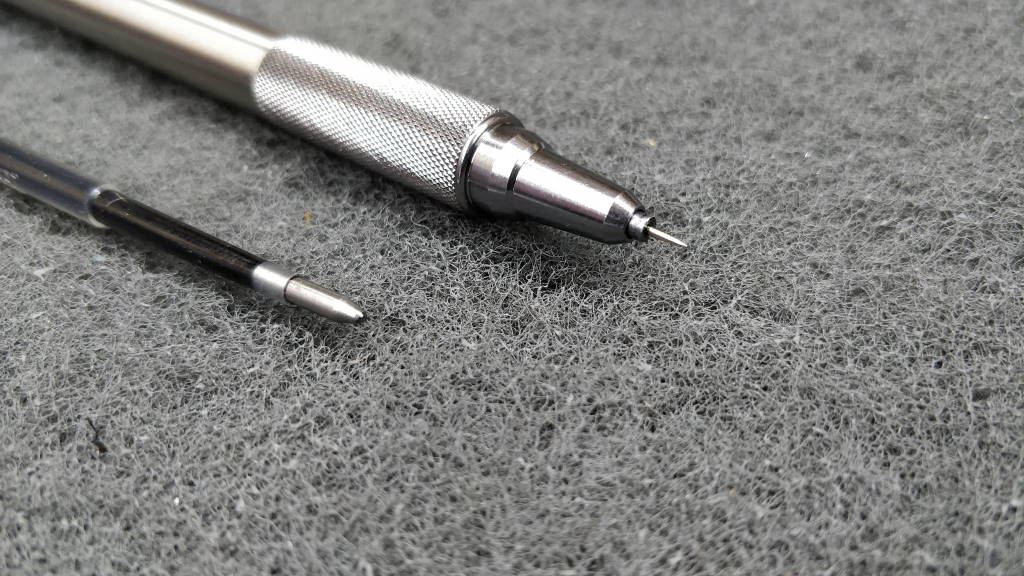
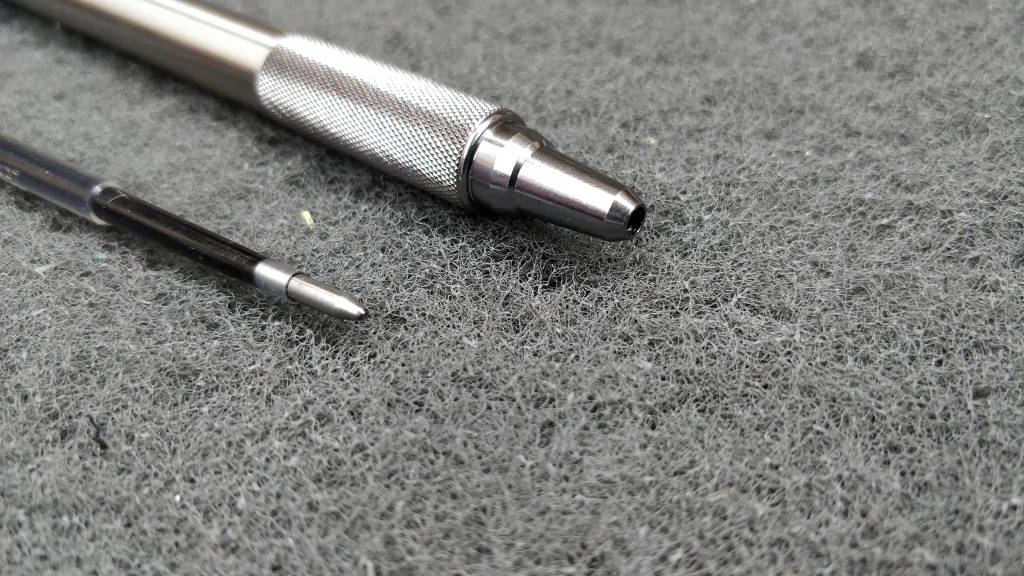
The mechanism inside the pen then does all the work, allowing the tip to be brought out for use and retracted so that when the scriber is in my pocket I won't puncture my hand when I reach in to get something out.
This website is free and ad-free, but costs me money to run. If you'd like to support this site, please consider making a small donation or sending me a message to let me know what you liked or found useful.
